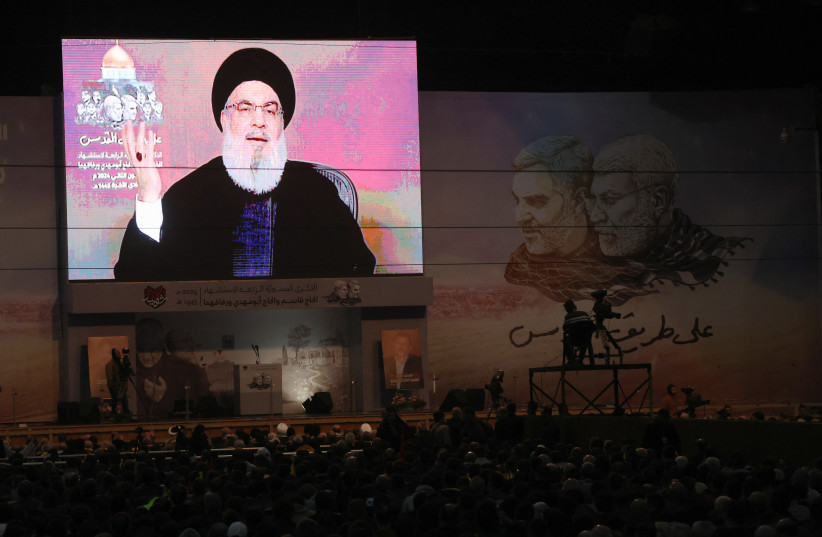The United States does not have any evidence to show that Israel assassinated Hamas deputy leader Saleh al-Arouri in Beirut, White House National Security Council spokesperson John Kirby told reporters in Washington on Wednesday.
“We have no indication to show that Israel was involved in any way,” Kirby said.
When pressed why he was dismissing comments by Israeli ministers about their goal of assassinating Hamas leaders, Kirby stated, “I was asked a simple question: Do we have evidence that Israel was responsible for it? And I said we didn’t.”
“Now, Israel, as I’ve said before, has a right and responsibility to go after the threat that Hamas poses, which means they have a right and a responsibility to go after the leadership of Hamas,” he stated.
“I would just tell you that al-Arouri was a noted designated global terrorist. And if he is, in fact, dead, nobody should be shedding a tear over his loss,” Kirby said.

He spoke after Hezbollah leader Sayyed Hassan Nasrallah said Israel had killed Arouri in a drone attack. Arouri’s assassination comes amid a continued push by the US, France, and others in the international community to prevent an all-out war between Israel and Hezbollah.
US: Escalation is in no one's interest
In talking about the concern regarding such an escalation, US State Department spokesman Matthew Miller told reporters that “it is in no one’s interest, not in the interest of any country in the region and the world, to see this conflict escalate any further than it already is.”
The US has taken “deterrent steps and diplomatic steps” to deliver that message, he said.
“It is not in Hezbollah’s interest, just as it is not in Israel’s interest to escalate this conflict in any way,” Miller said.
As part of its efforts to contain the conflict on Israel’s northern border, US special envoy Amos Hochstein is expected to visit Israel, possibly as early as Thursday.
Hezbollah and Hamas, however, have blamed Israel for the assassination, which could complicate efforts by Egypt and Qatar to mediate a hostage deal.
On Wednesday, Mossad Director David Barnea said he was committed to “settling the score” with Hamas.
“Let every Arab mother know that if her son took part, directly or indirectly, in the October 7 massacre, his blood is forfeit,” he said.
Ashraf Abouelhoul, managing editor of Egypt’s Al-Ahram daily and an expert in Palestinian affairs, said Arouri’s killing “may push Hamas to harden its stance so it doesn’t look as if it is bowing under pressures or threats of more assassination.”
On Tuesday, Riyadh-based Al-Arabiya news channel said Hamas had broken off talks in response to the assassination.
An Israeli official on Wednesday said as long as Qatar has not announced that talks over the release of hostages held in Gaza have broken off, then optimism was possible.
Israel has not claimed responsibility for the attack, even though it has sworn that all Hamas leaders are “dead men” and that it plans to assassinate them, the official told reporters.
Miller said the US would “continue to engage in quiet conversations behind closed doors to try and achieve the release of hostages.”
“Hamas knows the terms that are on the table,” he said.
Hamas and other armed terrorists seized some 250 hostages during the October 7 massacre. Since then, 110 have been released, and the bodies of 11 have been returned to Israel. An estimated 129 hostages remain in Gaza, including six who hold American citizenship.
Reuters contributed to this report.
